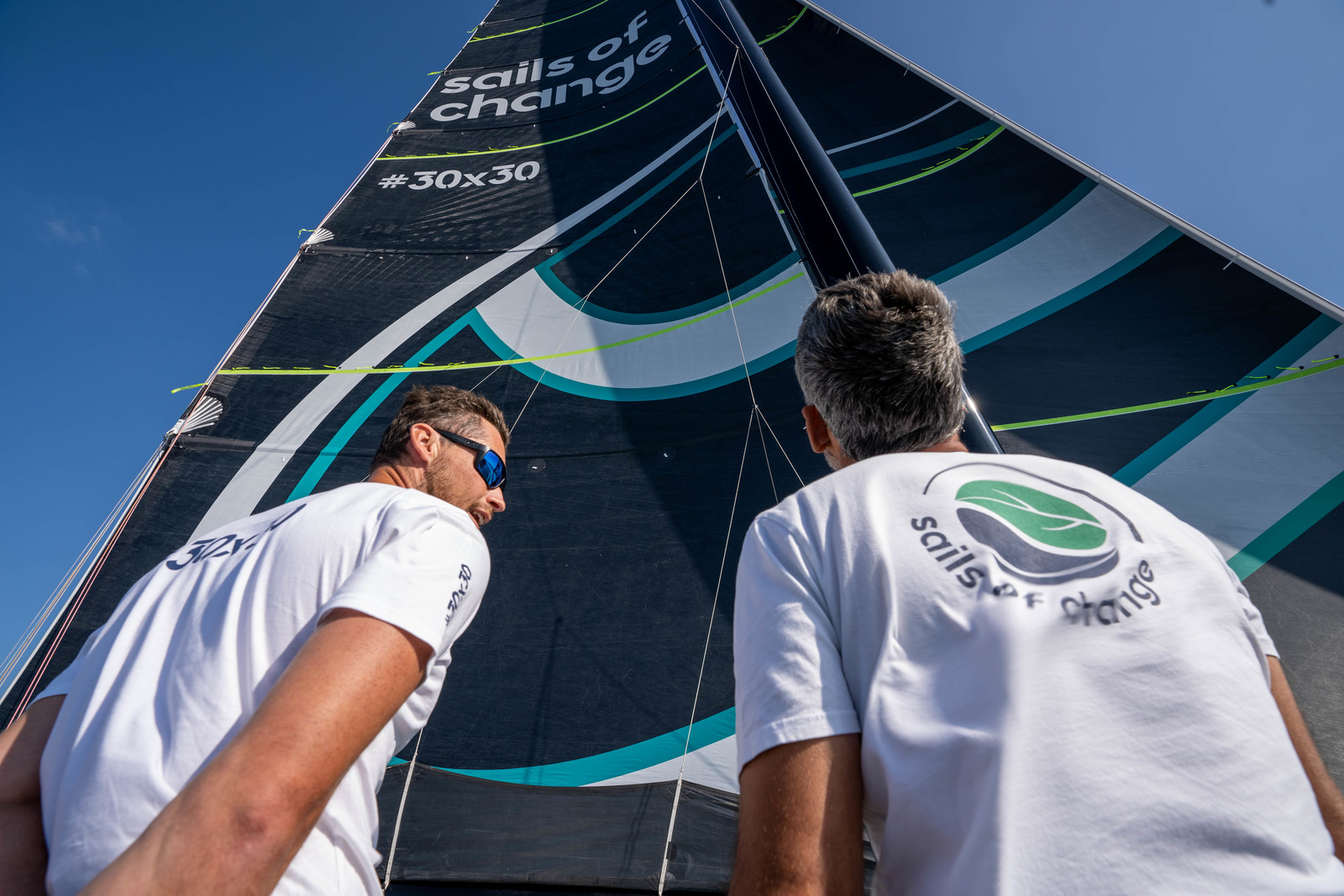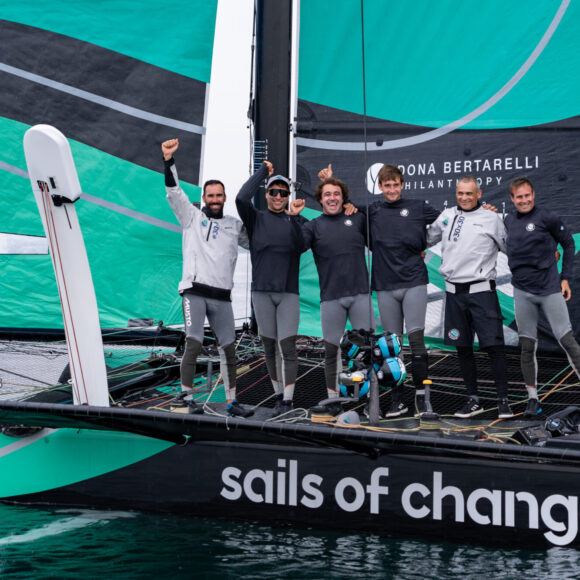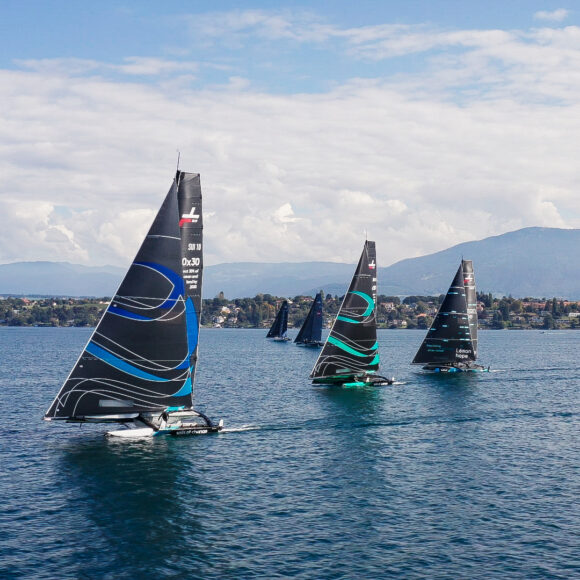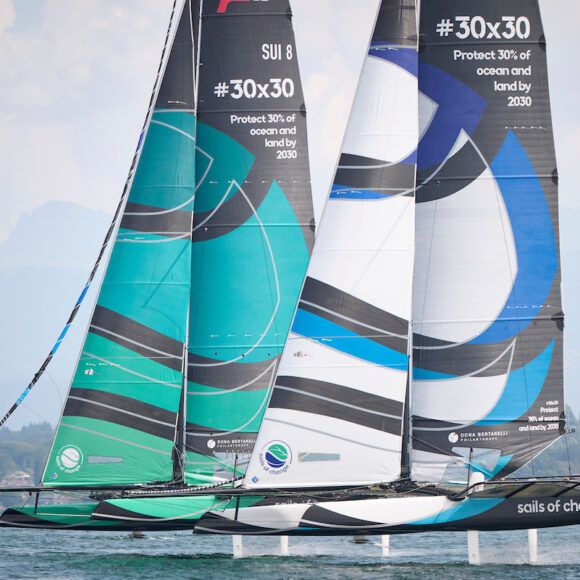“Our adventure goes beyond the human and sporting aspects,” said Yann Guichard. “As part of the Spindrift programme, we want to integrate our philanthropic actions and the values that are important to us in terms of ocean and planet conservation. Dona was already conveying these messages during our first attempt in 2015.”
“For the past 20 years, I have been focused on creating large marine protected areas, and safeguarding biodiversity. The close link between the health of the oceans, the climate, and our own health is no longer in doubt,” said Dona Bertarelli.
Since last year, the Spindrift team has been focused on preparing a boat that can race around the world without using fossil fuels. “It is a challenge within a challenge,” said Yann. “There will be no combustion engine onboard which would usually power the electronics, communications, water desalination, and heating water for food. To compensate, we have solar panels, two wind turbines, and a direct methanol fuel cell.”
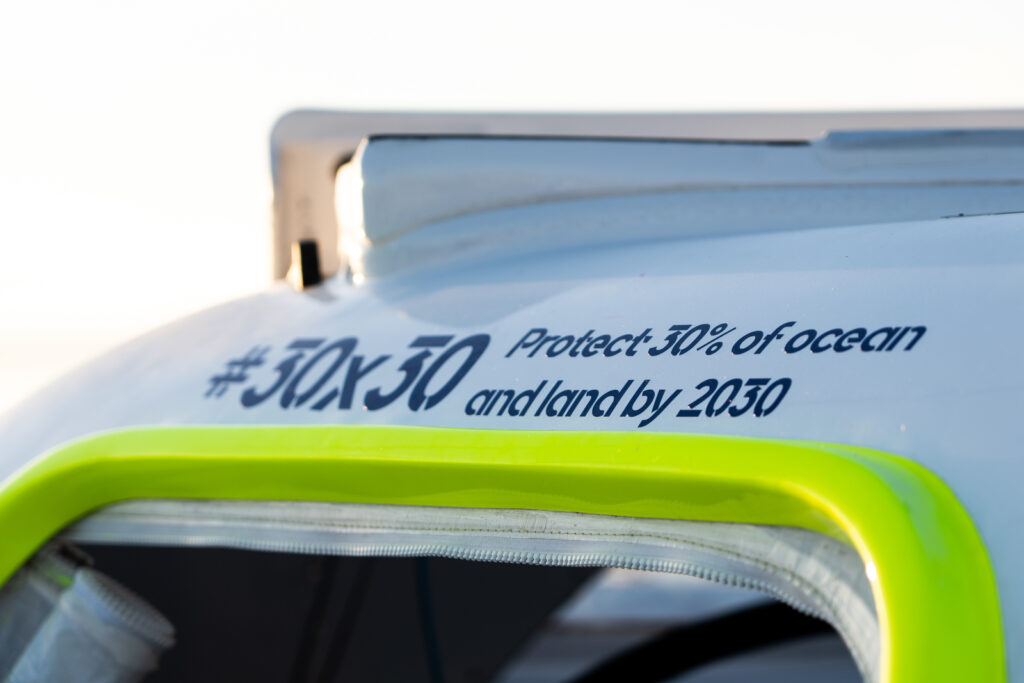
Around the world record attempt 2022-2023
Driven by a deep respect for the environment, sustainability is a core value for the founders of Spindrift. Across all their activities, whether it is helping to protect and regenerate the biodiversity of the oceans or of the land for the benefit of those that depend on a healthy environment. Or striving to minimise the impact of their operations on the environment, Dona Bertarelli and Yann Guichard are committed to doing their bit to create a sustainable future for our planet.
Energy on board Sails of Change
This winter, Dona Bertarelli, and Yann Guichard along with nine other crew members will set off to challenge the Jules Verne Trophy round-the-world record again onboard the maxi trimaran Sails of Change. The goal is to race around the world in less than 40 days. Through this challenge, the Spindrift team seeks to raise awareness of the need to act together to achieve the objective of protecting at least 30% of the planet by 2030. The crew aims to prove that performance and sustainability are compatible by using solar and wind energy instead of fossil fuels to power their challenge.
Energy consumption
The Sails of Change maxi trimaran needs energy to sail, but also to power the devices onboard that are used to navigate and to make life comfortable for the crew. The average consumption is 40 Wh (= 0.40 kWh), excluding the power required to run the electric kettles to heat water or the hot water tank which maintains a water temperature of 70 degrees. Power consumption reaches 500 Wh when the kettles are in operation.
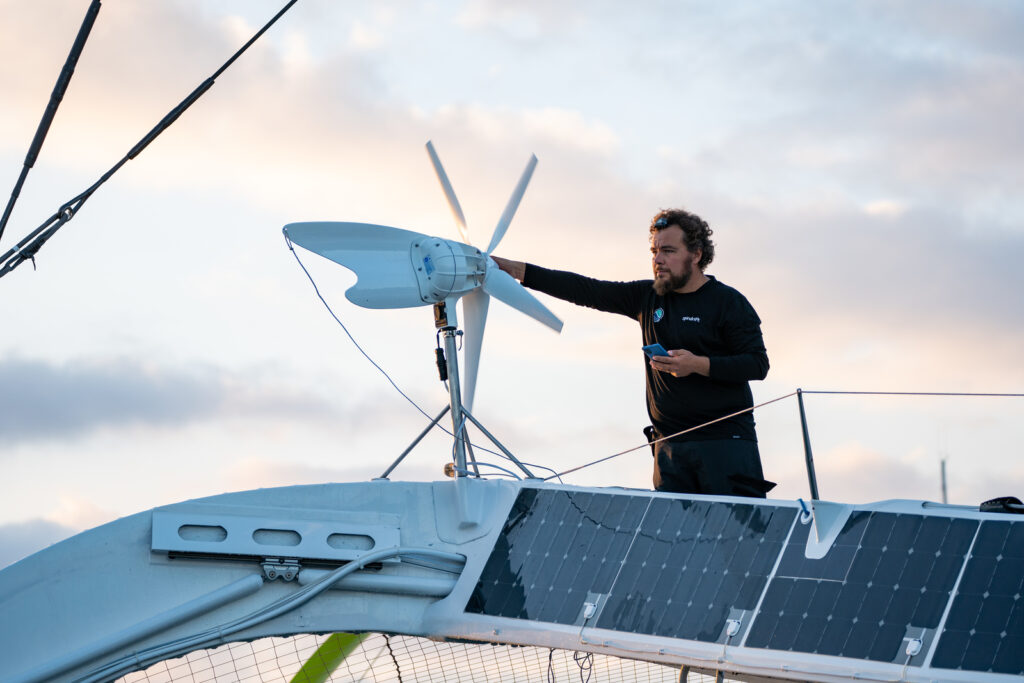
Wind energy
Keeping in mind that the maxi trimaran is a sailing boat, the primary source of propulsion is the wind. With a cumulative sail area of approx. 1,000m2, Sails of Change can reach speeds of up to 50 knots (approx. 90km/h*).
A fixed wind turbine positioned on the stern of the boat converts the wind to up to 600 Wh (=0.6kWh) of electrical energy depending on the apparent wind speed. The average apparent wind speed around the world is approx. 25 knots on board Sails of Change. With this wind strength, the turbine produces approx. 280 Wh.
A second, spare wind generator can be fitted on a dedicated stanchion on the port or starboard side. This wind turbine is in every respect identical to the one fitted to the transom.
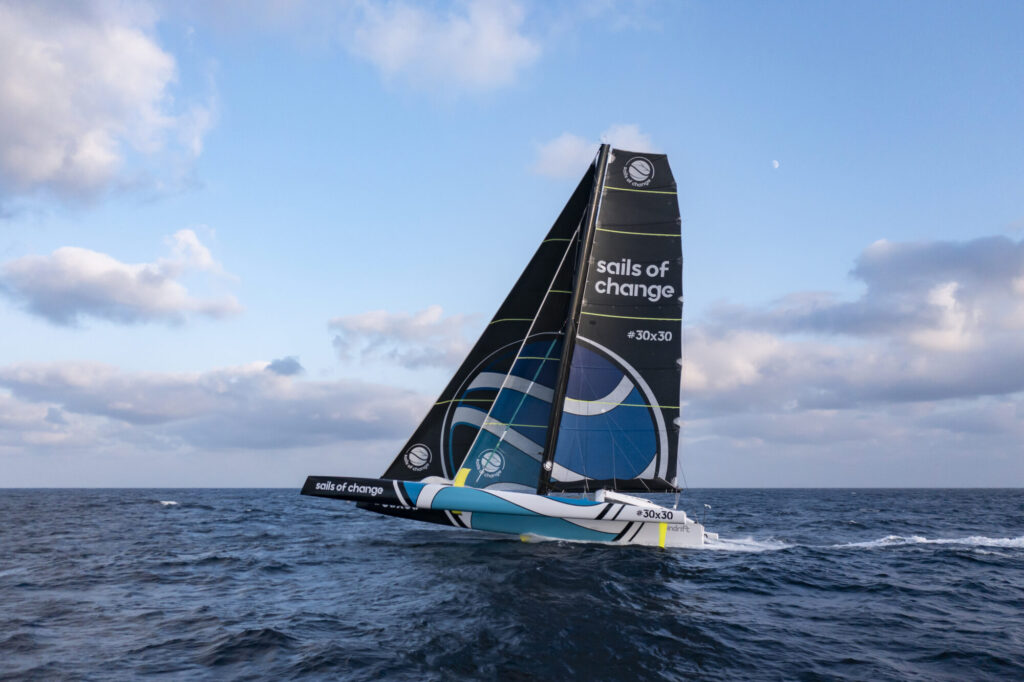
Solar power
With the aim of breaking the round-the-world record without using fossil fuels, the boat has also been equipped with 36m2 of solar panels (8,500 Wp) that can produce up to 4,000 Wh (=4kWh). These photovoltaic cells capture and convert solar energy to electrical energy.
A back up plan : a direct bio-methanol fuel cell
To manage a simultaneous lack of sun and wind, the team has installed a direct bio methanol fuel cell in the space that once housed the boat’s engine. The bio methanol is supplied by a French company, ARM Engineering ; it is produced from non-food biomass (manure) which comes from Denmark. The direct methanol fuel cell operates like a standard battery, exchanging ions between an anode and a cathode which converts methanol CH3-OH into CO2 and H2O in the form of steam. This exothermic reaction produces the equivalent of 1,500 Wh of heat and 500 Wh of electricity.
If the battery operates continuously, it emits the CO2 equivalent of 10 people breathing normally, and about 10 litres of water every 24 hours.
Did you know ?
The kilowatt hour abbreviated to Kw.h or kWh is a unit of energy measurement corresponding to the energy consumed by an appliance of 1,000 watts (1kW) during one hour.
This unit is mainly used to measure electrical energy.
